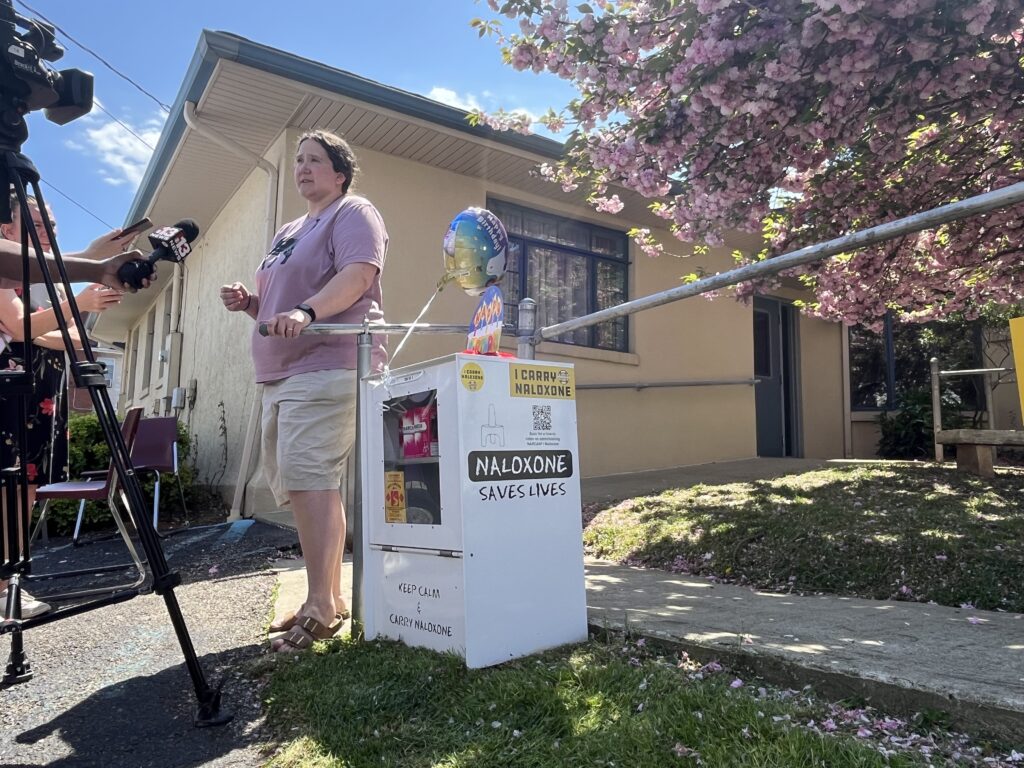An unassuming former newspaper box sits unlocked at a church on Charleston’s west side. On Monday afternoon, the box wore a happy birthday hat with a balloon tied to its handle.
The box is filled with Narcan, an opioid reversal drug that can stop an overdose. Also available in this box are drug testing strips and plan B emergency contraceptives.
It was the box’s first birthday and advocates gathered to celebrate with a party.
The event is meant as a beacon of hope and celebration with music, food, dancing and chalk drawings and messages like, “We love you” and “You are valuable.”
Chelsea Steelhammer is a volunteer with SOAR, a Charleston-based community group that says it promotes the health, dignity and voices of individuals who are impacted by drug use.
Steelhammer said the box has helped distribute 300 Narcan kits, each containing two doses, in the year it’s been installed.
“People can come and get it and there’s no questions asked, there’s no real stigma about just coming into a church parking lot, walking around, coming back out, nobody knows what you’re doing,” Steelhammer said. “And you can get things that might save your life or a loved one’s life.”
Steelhammer said people have a misconception about Narcan. She says it should be treated like any first aid item.
“They’re like, ‘I don’t use drugs,’ but it’s not for you, because you can’t use it on yourself,” Steelhammer said. “So, it’s, it’s just something to have in your first aid box.”
Gail Michelson is a volunteer with SOAR and a lawyer who has watched the opioid epidemic unfold throughout the legal system and in her community.
“When it all began to come out about how these pills became available to people legitimately,” Michelson said. “I thought they had started a whole epidemic here and that we must do everything we can to stop it and keep people alive.”
Michelson said the vending machines are a more accessible and realistic way for people who suffer from substance use disorder to obtain harm reduction tools.
“Because people don’t want to go in to pay $60 or even if it was free and go to their local pharmacist and go ‘Oh, do you use drugs?’ It’s a very nice and anonymous way to get it done,” Michelson said.
The box was installed by SOAR, using grant money from the Women’s Health Center and AIDs United. The Women’s Health Center in Charleston also has a Narcan vending machine.
“If you can reach out to SOAR, we could probably get you some funding or hook up with partnerships so that you will be able to be a community lifesaver as well,” Steelhammer said. “And even if you’re not interested in a whole box, but you want training or your church or business or organization, we can provide that for free so that you’re able to better serve your community.”
SOAR is working with CareSource, a health insurance agency, and other partners to place more than 50 naloxone vending machines across the eastern states, including West Virginia this year.
Appalachia Health News is a project of West Virginia Public Broadcasting with support from Marshall Health.




















